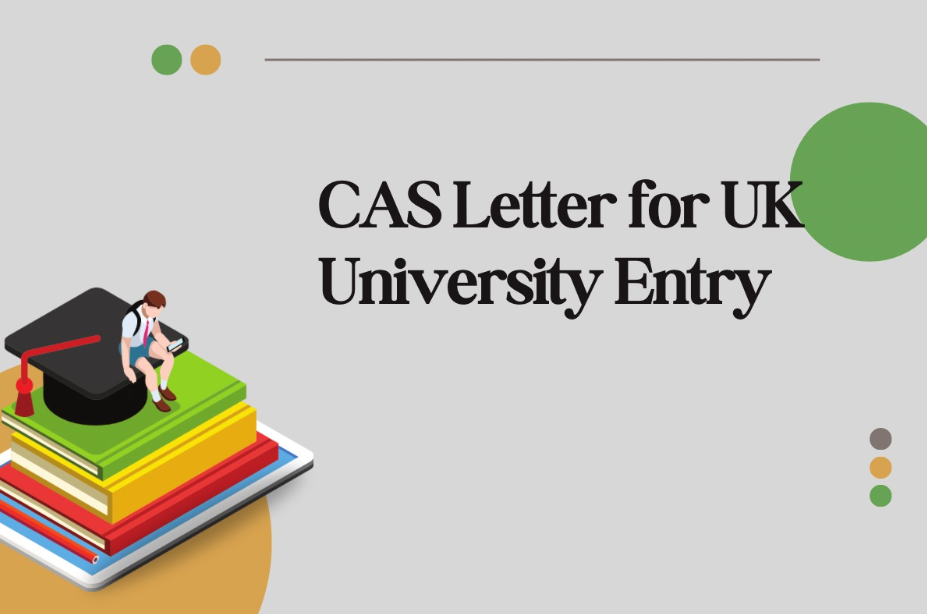Deep Dive: Confirmation of Acceptance for Studies (CAS)
The CAS (Confirmation of Acceptance for Studies) is the cornerstone of the UK Student Route Visa application. Here’s a detailed breakdown of what it is, why it’s critical, and how to navigate its complexities:
1. What is a CAS?
- A CAS is a unique 14-digit reference number issued by a UK educational institution (licensed Tier 4/Student Route sponsor) to confirm they’ve accepted a student onto a course.
- It is not a physical document but a digital record linked to the UK Visas and Immigration (UKVI) system.
2. Why is a CAS Necessary?
- Visa Requirement: A CAS is mandatory to apply for the UK Student Route Visa. Without it, the visa application cannot proceed.
- Verification Tool: UKVI uses the CAS to:
- Confirm the student’s admission to a genuine course at a licensed institution.
- Verify course details (e.g., level, duration, fees).
- Check the student meets eligibility criteria (e.g., English proficiency, academic qualifications).
3. Components of a CAS
The CAS includes the following information, which the university uploads to the UKVI system:
1. Student Details:
- Full name, passport number, nationality.
2. Course Details:
- Course title, level (e.g., Bachelor’s, Master’s), start/end dates.
- ATAS certificate (if required for sensitive STEM fields).
3. Financial Information:
- Tuition fees for the first year.
- Amount already paid to the university (e.g., deposit).
4. English Language Proficiency:
- Test type (e.g., IELTS) and scores (if applicable).
5. Previous UK Study:
- Details of prior UK visas or study (to check for progress rules).
4. How to Obtain a CAS
- Receive an Unconditional Offer: The student must meet all academic/English conditions.
- Pay a Deposit: Most universities require a tuition fee deposit (varies by institution).
- Submit Documents: Passport, academic transcripts, English test results, and financial proof.
- CAS Issuance: The university generates the CAS and emails the reference number to the student.
Timeline: CAS is typically issued 3–6 months before the course starts.
5. Common CAS Issues & Solutions Issue and Solution
Typos/Errors in CAS Details: Contact the university immediately to correct the CAS before applying for the visa.
Delayed CAS Issuance :
Follow up with the university’s admissions team; delays often occur during peak seasons (July–September).
CAS Expiry:
A CAS is valid for 6 months. If unused, the student must request a new CAS.
Course Change/Deferral:
A new CAS is required if the student switches courses or defers admission.
6. CAS and Financial Proof
- Tuition Fees: The CAS states the first-year tuition fee and any amount already paid.
- Example: If the fee is £20,000 and the student paid a £5,000 deposit, they must show£15,000 for tuition + living costs.
- Maintenance Funds:
- Students must prove they have enough funds for living costs (£1,023/month outside London, £1,334/month in London).
- The CAS does not include this, but the visa application requires 28 days of bank statements.
7. CAS vs. Offer Letter
| CAS | Offer Letter |
| Issued after meeting all conditions | Issued before meeting conditions (conditional/unconditional). |
| Required for the visa application | Not used in the visa process |
| Contains UKVI-verified course details | Outlines course entry requirements. |
8. Troubleshooting CAS Problems
- Visa Refusal Due to CAS:
- If UKVI finds discrepancies (e.g., course level mismatch), the student must reapply with a corrected CAS.
- Lost CAS Reference Number: Contact the university’s international office to retrieve it.
9. Pro Tips for Counselors
- Double-Check CAS Details: Ensure the student’s name, passport number, and course dates match their documents.
- Track CAS Validity: Advise students to apply for their visa within 6 months of CAS issuance.
- Communicate with Universities: Build relationships with admissions teams to resolve CAS issues swiftly.
Key Takeaway
The CAS is the backbone of the UK Student Route Visa. Counselors must ensure students:
- Receive a CAS from a licensed institution.
- Verify all details match their documents.
- Apply for their visa before the CAS expires.
1. What is the CAS Deadline?
- A CAS is valid for 6 months from the date it is issued by the university.
- The CAS deadline is the last day of this 6-month period.
- If the student does not use the CAS to apply for a visa before the deadline, the CAS expires, and the student must request a new one.
2. Why Does the CAS Have a Deadline?
- Prevent Backlogs: Ensures the UKVI system is not overwhelmed with outdated or unused CAS records.
- Maintain Accuracy: Course details, fees, and student information may change over time, so a 6- month validity ensures data is current.
- Streamline Admissions: Encourages students to apply for visas promptly, allowing universities to plan intake numbers effectively.
3. How to Calculate the CAS Deadline
- Example: If a CAS is issued on March 1, 2024, the deadline to use it is August 31, 2024 (6 months later).
- Key Point: The deadline is based on the CAS issuance date, not the course start date.
4. What Happens if the CAS Deadline is Missed?
- The CAS expires and becomes invalid for visa applications.
- The student must:
- Contact the university to request a new CAS.
- Pay any additional fees (if required by the university).
- Wait for the new CAS to be issued (typically 5–10 working days).
- Reapply for the visa using the new CAS.
5. Pro Tips for Managing CAS Deadlines
- Apply Early: Encourage students to apply for their visa as soon as they receive the CAS.
- Track Issuance Dates: Keep a record of when the CAS was issued and calculate the deadline.
- Communicate with Universities: If delays occur (e.g., financial proof issues), inform the university to extend the CAS validity if possible.
6. Common Scenarios
Scenario 1: CAS Issued Early
- Example: A student receives a CAS on January 15, 2024, for a course starting on September 30, 2024.
- Deadline: July 15, 2024.
- Action: The student must apply for the visa by July 15, even though the course starts later.
Scenario 2: CAS Issued Late
- Example: A student receives a CAS on August 1, 2024, for a course starting on September 30, 2024.
- Deadline: January 31, 2025.
- Action: The student has ample time to apply for the visa before the course starts.
Scenario 3: CAS Expires Before Course Start
- Example: A student receives a CAS on March 1, 2024, but delays their visa application until September 1, 2024.
- Deadline: August 31, 2024.
- Outcome: The CAS expires, and the student must request a new one.
7. How Universities Handle CAS Deadlines
- Early Issuance: Some universities issue CAS early (e.g., 6 months before the course starts) to give students enough time to apply for visas.
- Late Issuance: Others issue CAS closer to the course start date to minimize the risk of expiration.
- CAS Extensions: In rare cases, universities may extend the CAS validity if the student provides a valid reason (e.g., visa processing delays).
8. Key Takeaways for Counselors
- Monitor CAS Issuance Dates: Always check when the CAS was issued and calculate the 6- month deadline.
- Advise Students to Act Quickly: Delays in visa applications can lead to CAS expiration.
- Stay in Touch with Universities: If a CAS is nearing expiration, contact the university to discuss options.
Sample CAS Deadline Timeline
CAS Issued – CAS Deadline Course Start Date Action Required
March 1, 2024 – August 31, 2024 September 30, 2024 Apply for visa by August 31.
June 1, 2024 – November 30, 2024 January 15, 2025 Apply for visa by November 30.
August 1, 2024 – January 31, 2025 February 1, 2025 Apply for visa by January 31.




